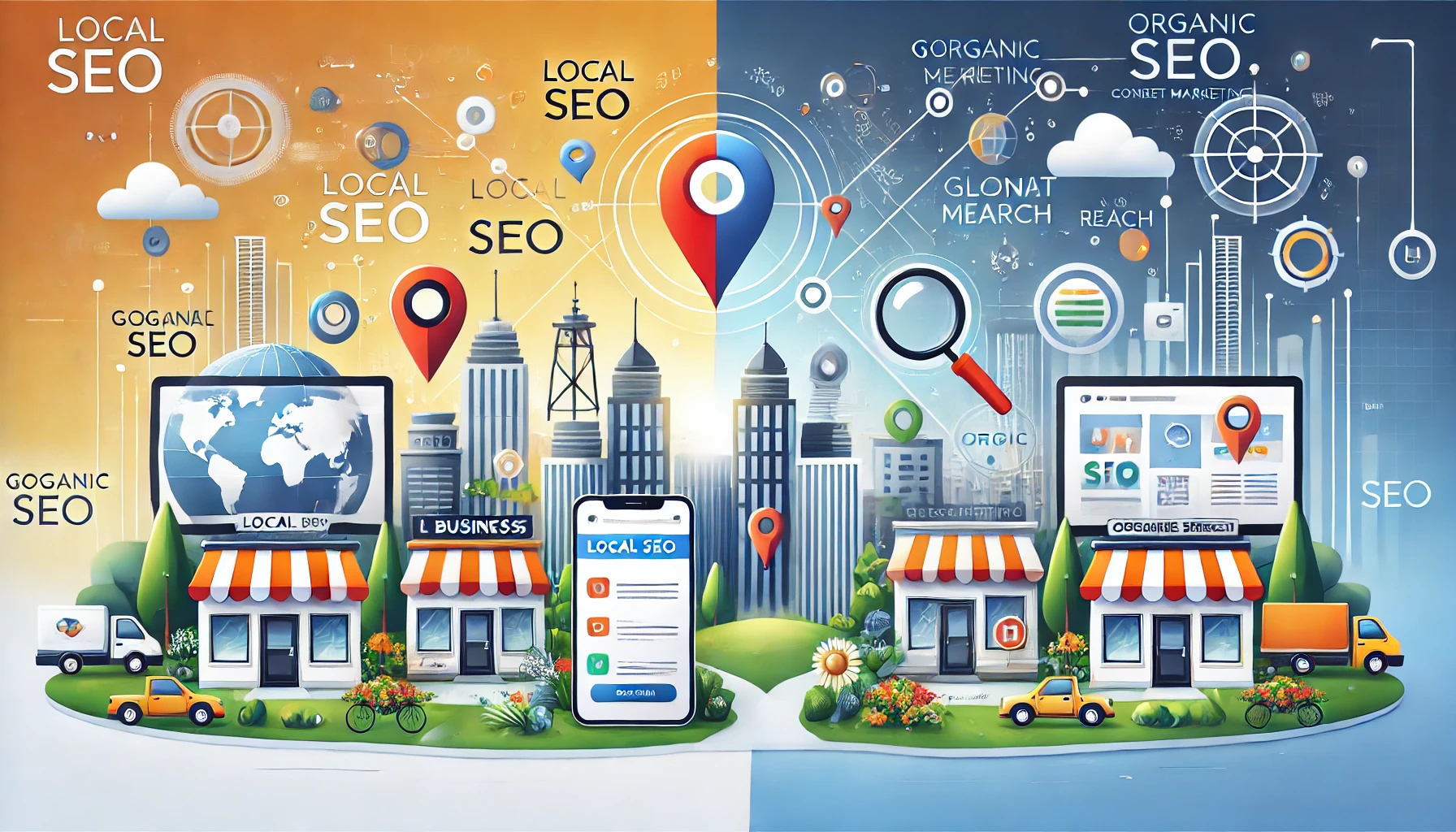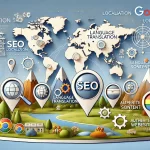Introduction
In this Blog, we’ll explore What is the Difference Between Local and Organic SEO , their benefits, and how businesses can implement them effectively to improve their search engine rankings. Search Engine Optimization (SEO) is a crucial strategy for businesses aiming to improve their online visibility. However, not all SEO strategies serve the same purpose. The two main categories of SEO are Local SEO and Organic SEO. Understanding the difference between these two can help businesses effectively target their audience and improve search rankings.
What is Local SEO?
Local SEO is the practice of optimizing a business’s online presence for location-based searches. It helps businesses appear in local search results when users search for services or products near them.
Key Elements of Local SEO:
- Google My Business (GMB) Optimization – Creating and optimizing a GMB profile with accurate business details.
- Local Citations – Getting listed in local directories and review platforms like Yelp and TripAdvisor.
- Customer Reviews & Ratings – Encouraging positive reviews to build trust and credibility.
- Geo-Targeted Keywords – Using location-based keywords such as “best coffee shop in Miami.”
- Local Backlink Building – Earning backlinks from local businesses, newspapers, and blogs.
- NAP Consistency – Ensuring Name, Address, and Phone Number (NAP) are consistent across all listings.
Benefits of Local SEO:
- Higher visibility in Google’s local 3-pack (map listings in search results).
- Increased foot traffic for brick-and-mortar businesses.
- Improved credibility through local reviews and ratings.
- Higher conversion rates due to local intent search queries.
What is Organic SEO?
Organic SEO focuses on improving a website’s ranking in non-location-based search results. It aims to enhance visibility for industry-specific queries without a geographical focus.
Key Elements of Organic SEO:
- Keyword Research & Optimization – Targeting high-volume, industry-related keywords.
- Content Marketing – Creating valuable blog posts, videos, and guides to attract traffic.
- On-Page SEO – Optimizing title tags, meta descriptions, headers, and images.
- Technical SEO – Improving website speed, mobile-friendliness, and crawlability.
- High-Quality Backlinks – Earning links from authoritative websites to boost domain authority.
Benefits of Organic SEO:
- Higher search rankings for broad, industry-relevant keywords.
- Long-term traffic growth without the need for paid ads.
- Establishes authority in an industry through valuable content.
- Increases brand credibility and recognition at a national or global level.
Local SEO vs. Organic SEO: Key Differences
| Feature | Local SEO | Organic SEO |
|---|---|---|
| Focus | Local businesses & geo-specific searches | Industry-related, national/global searches |
| Goal | Improve visibility in local search results | Rank higher for informational and transactional searches |
| Google My Business | Essential for ranking | Not required |
| Keyword Strategy | Includes local intent (e.g., “plumber in New York”) | Uses broader keywords (e.g., “best plumbing services”) |
| Backlink Strategy | Local citations & business directories | National/global authoritative backlinks |
| Search Results Placement | Appears in local 3-pack & maps | Appears in standard organic listings |
Which SEO Strategy is Right for Your Business?
- If you have a physical store, service area, or local clientele → Focus on Local SEO.
- If you offer products or services nationwide or globally → Invest in Organic SEO.
- For the best results → Combine both strategies to maximize visibility.
Conclusion
Understanding the difference between Local SEO and Organic SEO is key to developing a strong digital marketing strategy. While local SEO helps businesses attract nearby customers, organic SEO builds long-term brand authority on a larger scale. By following best SEO practices and optimizing for search engines effectively, businesses can improve their rankings and gain more visibility online. Are you looking to improve your local or organic search rankings? Start optimizing today and watch your business grow!




